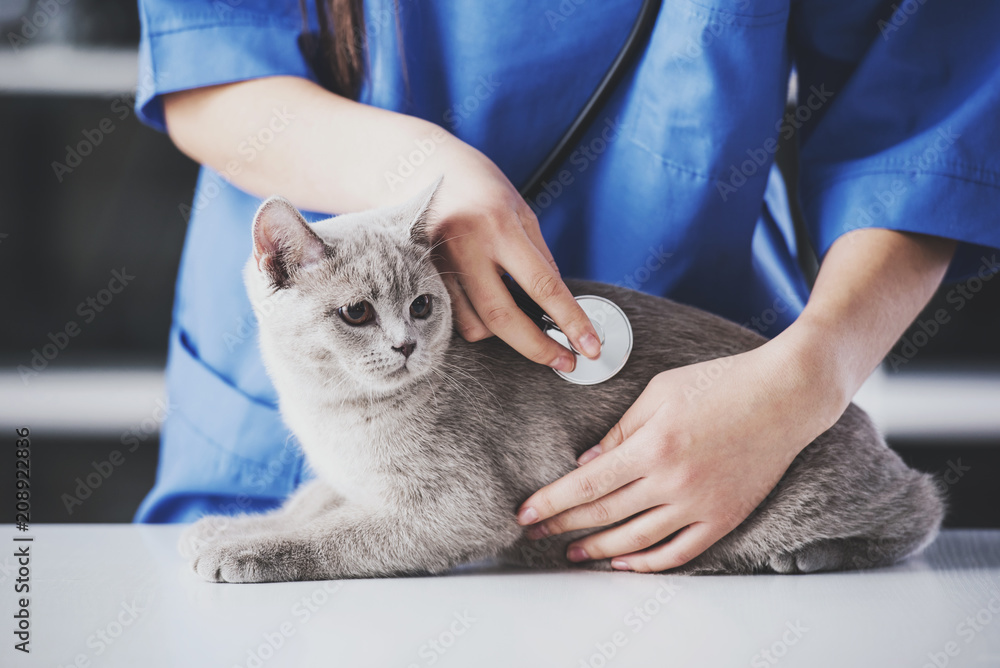Choosing the right veterinarian is one of the most important decisions you’ll make for your pet. Just like finding a doctor for yourself, you want a vet who is knowledgeable, experienced, and compassionate. A great veterinarian will not only provide quality medical care but also help guide you through preventive care, nutrition, and any health concerns that arise. With so many options available, knowing what to look for can make the process easier and ensure your pet gets the best care possible.
Assessing Your Pet’s Needs
Before you start your search, consider what kind of care your pet requires. Routine wellness checkups, vaccinations, and dental cleanings are standard for all pets, but some may need specialized attention. Certain breeds are prone to specific health conditions, and exotic pets often require a vet with specialized training. If your pet has an ongoing medical condition, such as diabetes or arthritis, you may need a vet with experience managing chronic diseases. Identifying your pet’s needs upfront will help you narrow down your choices and find a veterinarian best suited for them.
Researching A Local Veterinarian
Once you have a clear idea of what you need, start researching local veterinarians. Online reviews and ratings on sites like Google, Yelp, and the American Animal Hospital Association (AAHA) can provide insight into a clinic’s reputation. Personal recommendations from friends, family, or fellow pet owners can also be valuable. If you adopted your pet from a shelter or rescue, ask them which vets they recommend. It’s also worth checking whether the clinic specializes in certain pets or conditions, especially if you have an exotic animal or a breed with unique health concerns.
Evaluating the Credentials and Experience
Not all veterinarians have the same qualifications, so it’s important to check their credentials. Ensure that the vet is licensed and, if possible, board-certified in a specific area of expertise, such as internal medicine or surgery. Experience is another key factor—how long have they been practicing, and do they have experience with your pet’s species and breed? Additionally, vets who stay up to date with continuing education and advancements in veterinary medicine are more likely to provide the best care. You can often find this information on the clinic’s website or by asking directly.
Visiting the Veterinarian Clinic
A visit to the clinic can tell you a lot about the quality of care your pet will receive. Pay attention to cleanliness, organization, and the general atmosphere. A well-maintained facility with modern equipment is a good sign that the clinic prioritizes high standards of care. Observe how the staff interacts with clients and their pets—are they friendly and helpful? A welcoming and professional environment can make a big difference, especially if your pet is nervous about vet visits. If possible, schedule a meet-and-greet with the vet to see how they interact with your pet and answer any questions you may have.
Understanding Services and Pricing
Veterinary clinics offer a range of services, but not all provide the same level of care. Before making a decision, find out what services a clinic offers. Routine care like vaccinations, annual checkups, and dental cleanings should be standard. However, if your pet requires specialized treatments such as physical therapy, acupuncture, or advanced surgical procedures, ensure the clinic has the necessary expertise or can provide reliable referrals. Emergency care is another critical factor—does the clinic handle after-hours emergencies, or will you need to go elsewhere? Pricing is also important to consider. Veterinary costs can vary widely, so ask about pricing transparency, payment plans, and whether they accept pet insurance or offer wellness plans to help manage routine expenses.
Observing the Communication and Approach
A great veterinarian isn’t just skilled—they should also be an excellent communicator. When discussing your pet’s health, the vet should take time to explain medical conditions, treatment options, and preventive care in a way that’s easy to understand. They should also be open to answering questions and addressing concerns. If a vet seems rushed, dismissive, or unwilling to discuss alternatives, they may not be the best fit. Pay attention to how they interact with your pet as well—do they handle them gently and with patience? A good vet will make both you and your pet feel comfortable and valued.
Veterinarian Emergency and Specialty Care
Even if your pet is healthy now, emergencies can happen at any time. It’s important to know how a clinic handles urgent situations. Some veterinary hospitals offer 24/7 emergency care, while others may refer you to a nearby emergency clinic. If your pet has a complex medical condition, you may also need access to specialists such as oncologists, cardiologists, or orthopedic surgeons. Ask your vet about their emergency protocols and whether they have trusted specialists they work with. Knowing these details in advance can save valuable time in a crisis.
Making the Final Decision
After visiting clinics, meeting vets, and comparing services, it’s time to make a decision. Consider the overall experience—did you feel comfortable? Did the staff seem knowledgeable and compassionate? Most importantly, how did your pet react? Trust your instincts, and don’t be afraid to switch vets if something doesn’t feel right. Your pet’s health and well-being should always come first, so choosing a vet you trust is essential for their long-term care.
Conclusion
Picking the right veterinarian is a crucial step in ensuring your pet’s health and happiness. By considering your pet’s needs, researching clinics, evaluating credentials, and visiting potential vets, you can make an informed decision. A great vet will provide excellent medical care while also making you and your pet feel at ease. Taking the time to find the right fit now will set the foundation for a positive, long-term relationship that benefits both you and your furry (or scaly or feathery) friend.






